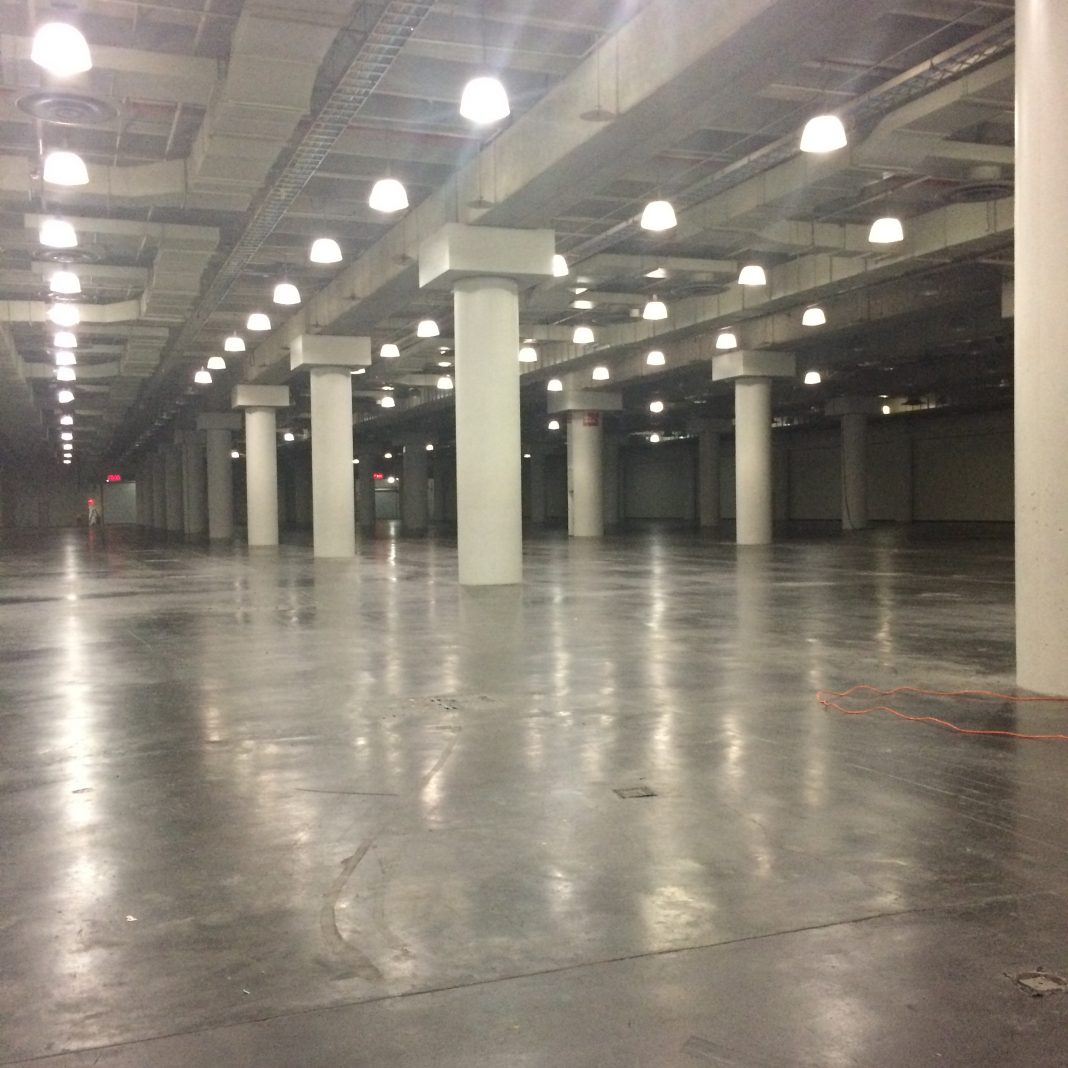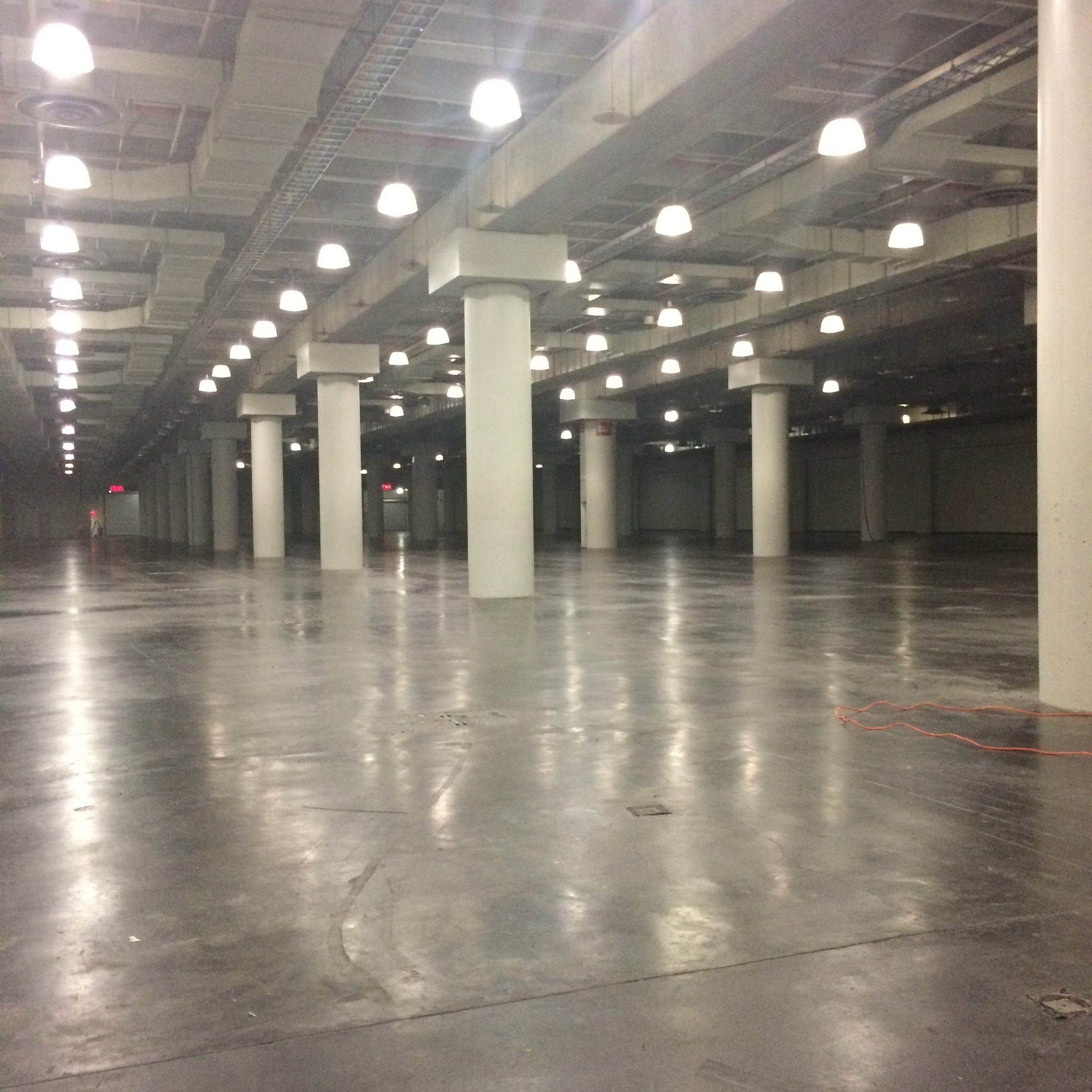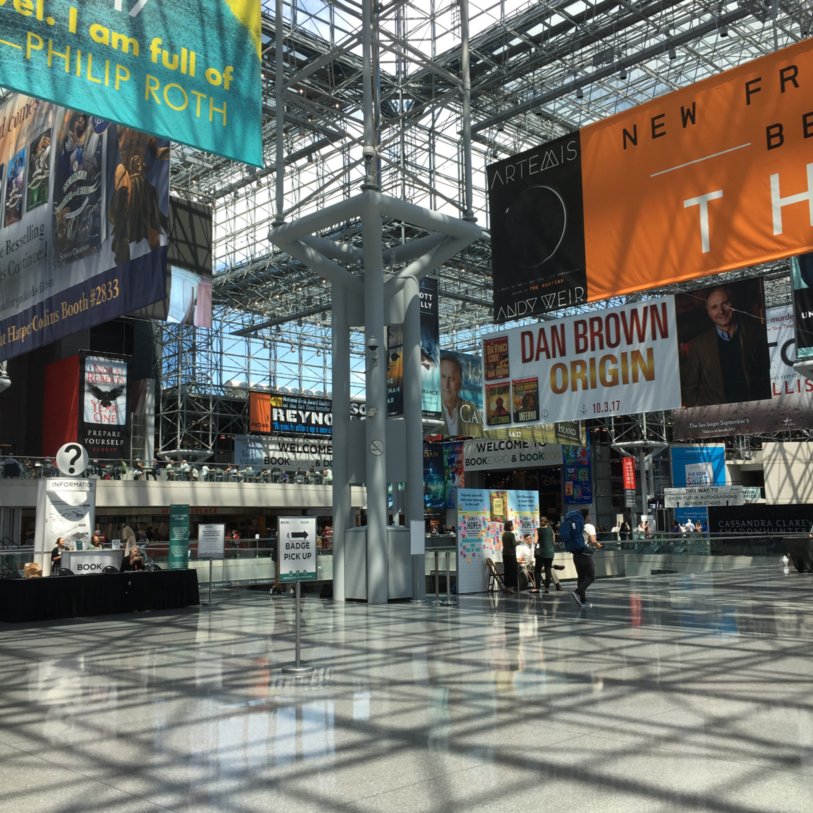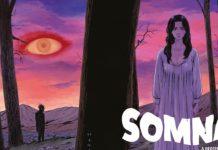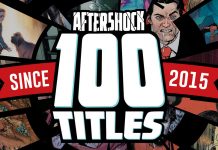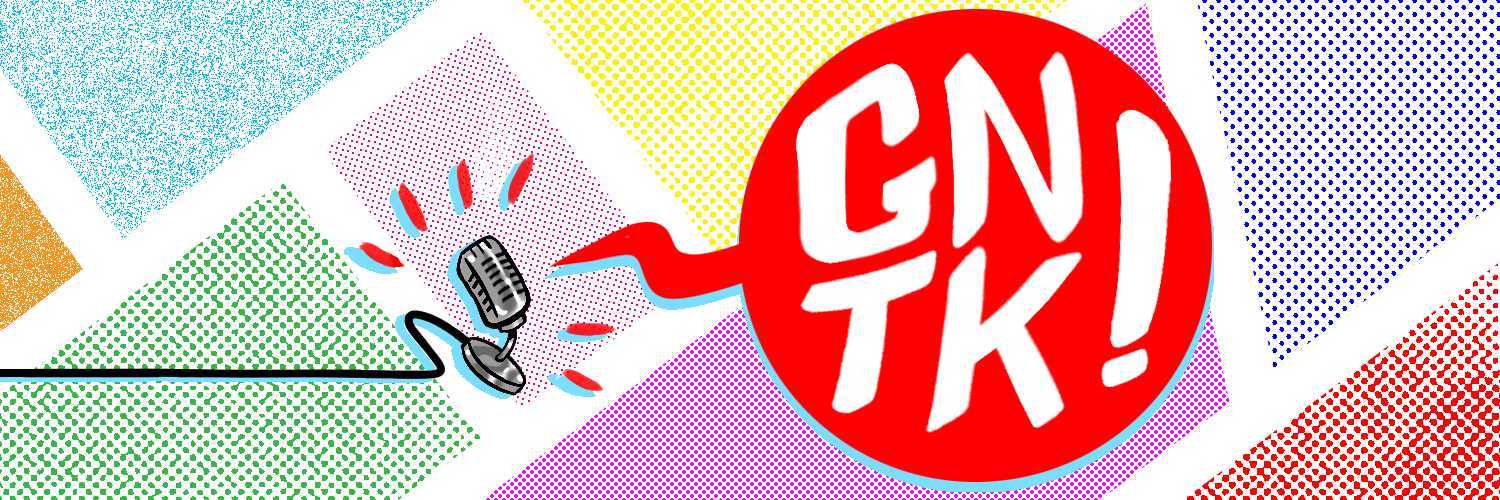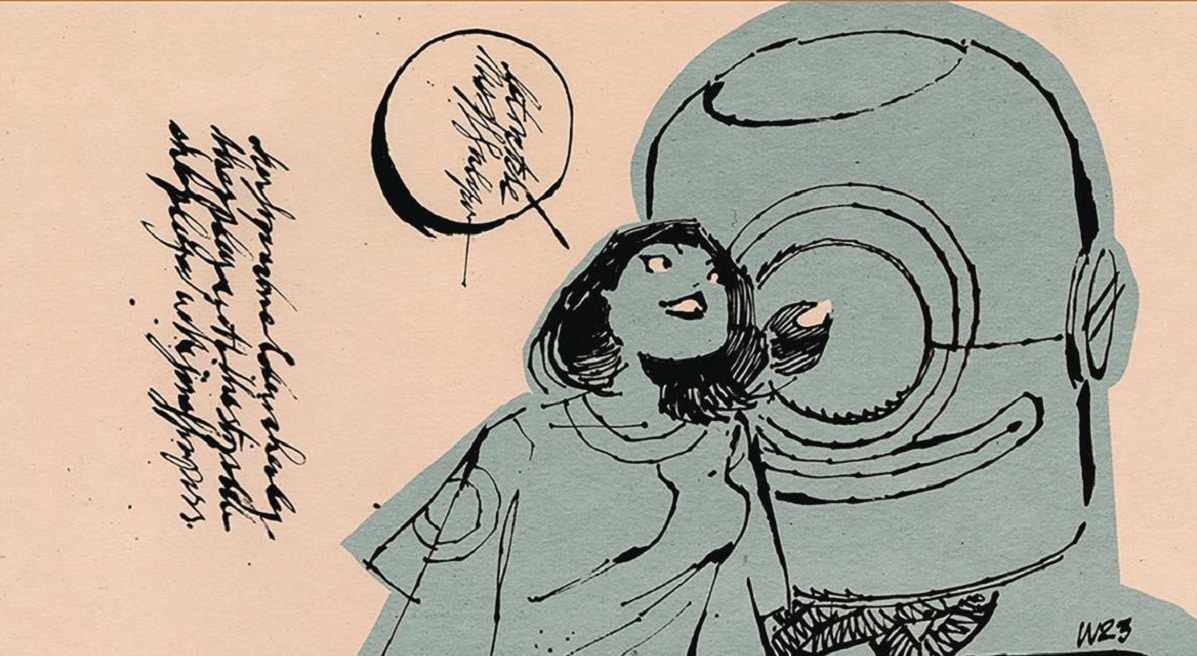Last week’s news that BookExpo and BookCon were being retired ‘for good’ struck the book publishing industry with a lot of sadness. Publishers Weekly had two reports on the reaction. Booksellers were unsurprised, as the business function of the confab had faded in recent years, but it was the camaraderie and — let’s be honest — goodies that they would miss:>>>Barrett added that she understands how the decision makes financial sense, but said it wasn’t good for the overall morale of the industry. “One of the things that really deeply pains me in this awful time is being cut off from the camaraderie and the energy of this industry as a whole–and it makes the world feel a little bleaker to me to think that, once we’re all ready to crawl out of our isolation at the end of this, that huge crazy wonderful ritual event won’t be there to look forward to any more,” she said.
BrocheAroe Fabian, owner of the River Dog Book Company, summarized what many people felt when she told PW, “I loved going for the access to publishers and the camaraderie amongst booksellers. I loved the tours of the publishing houses, the publishing dinners, the speed dating with publisher reps, etc. But, I felt like the last few years, booksellers were often treated like second class citizens on the show floor. We were in sessions; we couldn’t afford to stand in long lines to get ARC access. And I felt like publishers were giving out books (ARCs and finished copies) and SWAG less and less, which was half the fun of going—access to insider product and a chance to be really excited about snagging a copy of something.”
Publishers were more interested in what would be the replacement, but also know that the event has to be rethought.
>>>Among the criticisms of the old BookExpo was that it was too expensive and had lost its way in trying to be all things to all people. “For many years, BookExpo has been searching for its identity,” said Jon Malinowski, president of Combined Book Exhibit/American Book Collective and annually one of BE’s largest exhibitors. Unlike the major European book fairs in London, Frankfurt, and Bologna, Malinowski added, which are clearly rights shows, the show’s purpose in latter years felt unclear. “Many in publishing have asked, ‘What kind of show is BookExpo?’ I’ve always viewed it as a show for the ‘business of publishing,’ which encompasses more than just a single sector of the industry.”
I’ve never attended London, Frankfurt or Bologna — these shows continue to be huge events, at least pre-COVID but BookExpo had dwindled down to a meeting in search of a purpose.
However, like everyone, it sure gave me a lot of memories. My first one was very long ago, in Las Vegas of all places. Then called the BEA, it was the show’s one and only time there. I had never been to Vegas either, and it was quite the mind-boggling experience, including front row seats at a show by Tom Jones, a memory I still treasure.
BEA then had very little comics presence but it did have tons and tons of galleys. Pre-ebooks, picking up galleys of upcoming books was THE hot activity at BEA. Galleys were generally put out at 10 am and 2 pm, with signings by the biggest authors of the time ongoing.
I had been told about the bonanza of galleys, and bought extra suitcases to lug them home with me (I flew from LA to Vegas). Of course the suitcases were insanely lumpy and heavy and were absolutely never the same after a trip through the baggage handling facilities of the time. But I did score a galley of the first novel by Neil Gaiman, written with Terry Pratchett, Neverwhere, which I read on the plane back, and surely I still have that galley sitting here somewhere. Also somewhere is a photo of me being clutched to the bosom of Fabio, a famed romance novel model of the time. It was quite a show.
My next BEA was decades later, probably in LA, but after I started working for Publishers Weekly in 2004 I would generally go every year when it was in New York. The event was already starting to wobble a bit, but it still had all the trappings of what was once the glamourous, prosperous world of “New York publishing.” The parties were lavish, and star filled (although I managed to never get invited to any of the big ones) on rooftops and fancy cocktail lounges, and definitely looked forward to all year by the book crowd, the way we look forward to NYCC and SDCC.
There were lunches, brunches, receptions, endless cocktail parties. I hung out at the comics events, of course, and these were awesome. The end of the day cocktail reception in the Diamond aisle was always where all the comics people found each other and a great place to schmooze and network.
Although celebrities pushing their new kids book or memoir were everywhere at BEA, looking through my shelves I didn’t get many signed copies from them, probably because the lines were long and you really had to plan your day around them. I’m never good at planning. I did get to talk to Robert Osborne a few years ago before he died, and reminisce about our days working together at The Hollywood Reporter, so BEA let me close off that circle.
I got to meet Rep. John Lewis at BEA, and while he was walking around, not at a signing. I’ll never forget that, either.
Other things: I got to touch a sloth; Christopher Hitchens nearly accidentally hit me in the face with a door; I stood in the longest line ever — the longest line I ever saw at BEA — for Grumpy Cat. I glimpsed Pele and Hillary Clinton.
One of the things I noticed early on is that the longest lines at the show were usually at the Andrews McMeel booth for the cartoonists: Lynn Johnston, Cathy Guisewite. I pointed this out to people many times; but the publishing world then saw comics as a sidelight, not the booming category it is now.
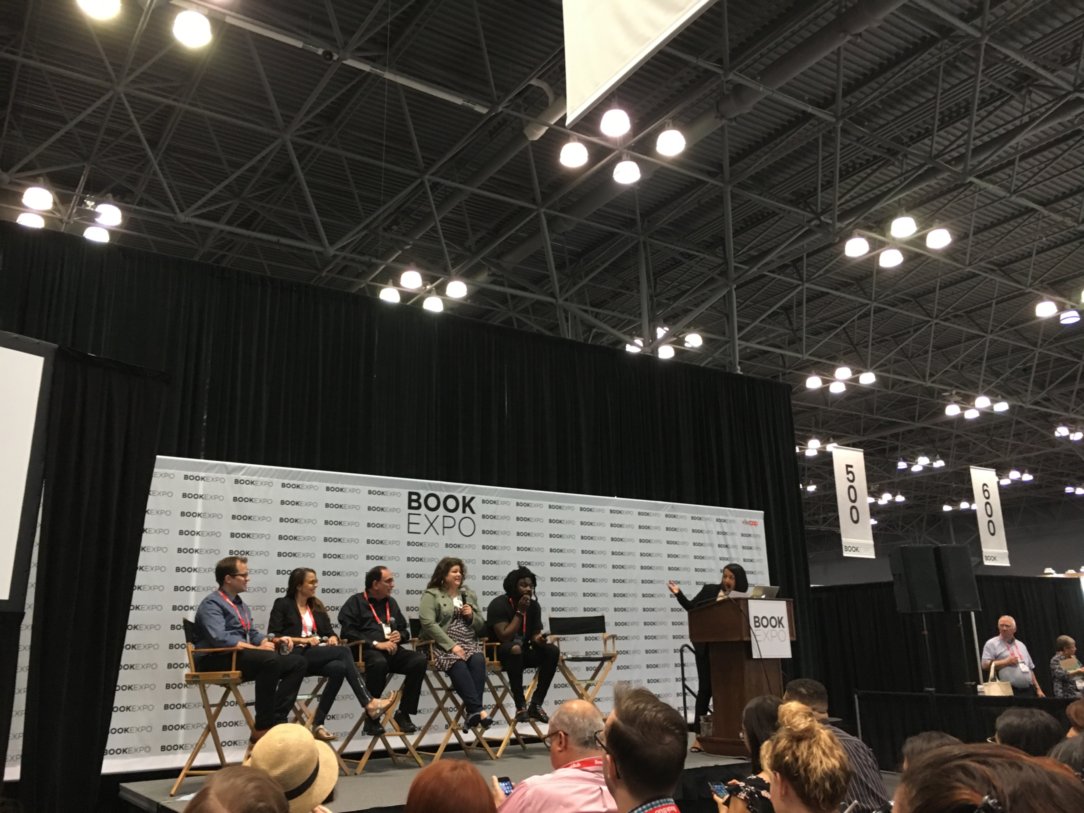
I attended as a journalist, but booksellers and librarians got even more perks and meetups and swag. Besides galleys, the hottest commodities were bags, sturdy bags. These were also only given out at certain times and if you missed the distribution hour…you did not get the highly coveted McGraw Hill bag. Believe me when I say I still have about a gazillion bags from BEA over the years, and they are the strongest on the circuit.
But aside from the swag, it really was a great place to network and meet other book lovers and authors. I’ve said it many times, but meeting your favorite author is an experience you will remember for the rest of your life. BEA was filled with these once-in-a-lifetime experiences for thousands of people, and they will be missed.
I guess I should say a little something about BookCon too… I was totally intrigued by the concept because it was obviously an attempt to harness the energy of Comic Con to the book world, given the favorite author phenomenon I just mentioned. To figure it out, I interviewed one of the showrunners here before the first show. The first BookCon was pretty small but it began to find its sea legs when it emerged that the readers who are the most passionate about authors are YA readers…so BookCon became mostly the territory of young women and girls. At one point I tried to count how many attendees were boys and it was maybe 1 in 20. That isn’t a knock — women read more than men, and have even more dedicated and organized fandoms.
But BookCon never grabbed on to quite the same energy as a big comic con. I’m not sure why; I’ve also noted many times that comic cons always seem to expand and take in more and more elements until you have the sprawling culture fairs of ECCC and SDCC and the rest. Other trade shows and pop culture events don’t quite spread out in the same way.
I’m told that the Frankfurt Bookfair and other big European book shows are pretty huge, as they have successfully melded the rights fair — a place where publishers shop for books from other territories to pick up — and the public book fair. BookExpo/BookCon never quite managed to do that.
Of course, all events are on hold for now, but it’s inevitable that BookExpo/BookCon will return in some fashion when we can have shows again. The US book industry will want to have a splashy showcase for new titles, and other industry business will want to show off their wares in person. No one seems to be certain of how it will be reimagined…or what the world will look like when it is. But one thing I am certain of: people will still yearn for those moments of meeting the authors they love — and finding new books to fall in love with.
–Heidi
(An earlier version of this appeared in the Beat newsletter.)


